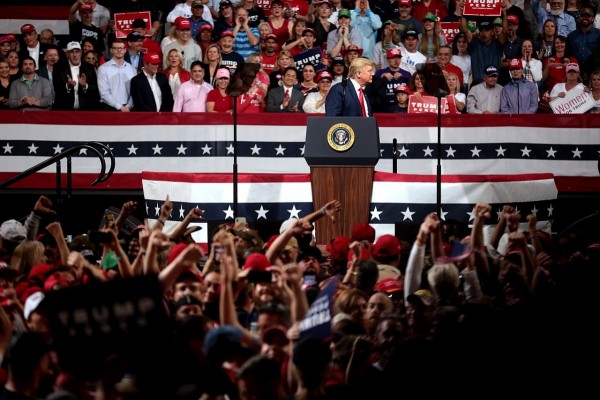Democratic establishment deals Super Tuesday blow to Bernie Sanders, but race is far from over

Nurses and friends turned out in support of Bernie Sanders in Los Angeles, California, March 1, 2017, two days before Super Tuesday. Photo by National Nurses United.
Super Tuesday did not go as Bernie Sanders and his diverse working-class movement had hoped. Many projections of the single biggest primary date, as little as a week ago, had Bernie Sanders winning big across most states, with the prospect of massive delegate hauls in Texas and especially California propelling him to a massive lead in delegates over his fellow competitors. It was so dire—the Mike Bloomberg campaign suggested—that Bernie could have built an insurmountable lead on Super Tuesday.
But the establishment had other ideas. Joe Biden scored an expected win in South Carolina, and though the margins were bolstered by an endorsement from Jim Clyburn, the media blew the significance of the victory far out of proportion. This, combined with Amy Klobuchar and Pete Buttigieg swiftly exiting the race and endorsing Biden, had the effect of creating a momentum bomb for Biden that carried him through Super Tuesday. This was all on top of other endorsements, like that of Beto O’Rourke, which likely played a major last-minute role in Texas.
The result that was that Biden overperformed the expectations nearly everywhere, including winning states like Minnesota and Massachusetts, where it was felt he had little if any chance. And a strong second in California prevented a delegate deluge for Bernie. The result is that instead of being behind, Biden will likely have a narrow delegate lead when all Super Tuesday votes are counted. Michael Bloomberg dropping out on Wednesday will likely give Biden further centrist consolidation, along with hundreds of millions of dollars in Super PAC support. The fact that Biden did far better with voters who made their decision late underlines that voters have been moving in his general direction as of late.
Many in the media are suggesting that the race is over because of Biden’s 72-hour coup, but that’s in no way certain. To be clear, Biden’s victory was impactful, and with Florida being a stronghold for Biden, he has opportunities to expand his lead. But Bernie Sanders remains within striking distance, has strong states remaining in various parts of the country, and most importantly, can hone in on Joe Biden’s personal and ideological weaknesses in what has become a true two-horse race, given that Elizabeth Warren announced her departure from the race Thursday afternoon. In this context, Bernie will have a much easier time drawing clear distinctions between himself and Biden, especially on issues that matter to Democratic voters like healthcare and Social Security, where Biden has a right-of-centre legacy out of line with the party base.
So while it’s advantage Biden at this stage, he remains a weak, gaffe-prone candidate without an organizational base in much of the country. If Bernie Sanders can have a decent result in next week’s primaries, especially Michigan, he will likely have one final debate to make his case to a large audience. This debate will likely also best simulate a presidential contest, given that it will not be a six or seven-person affair.
One wildcard at this stage is Elizabeth Warren, who has yet to make a decision regarding her endorsement. She may well stay neutral, or choose to side with Biden or Bernie, but in any case, her choice will be impactful. Still, the logical move for Warren should be to line up with Sanders, not only because of their shared policy and ideological goals, but because Warren’s role in a Sanders administration would be much more central and meaningful than in a Biden White House where she would be marginalized as the token progressive at best. If Warren wants to wield executive power and implement national childcare, a wealth tax, and Medicare for All, then Bernie is the key.
But a Warren endorsement alone likely will not get Bernie back into the lead. The core struggle for Bernie in this campaign has been the lower than expected youth turnout. Bernie’s only path to victory is to maximize young voters uniting behind him to push a progressive and hopeful vision for the party and country, but the resilience of the Boomer wave has kept Biden strong. Bernie must either find a way of appealing to older voters—especially older black voters—as well as drive young voters. If he can’t do either or both, victory will be elusive as the race goes forward, and the number of available delegates dwindles.
The point here is not to despair, but to convey that Bernie and his movement need to make a move quickly to expand their base, energize their prospective voters, and expose Joe Biden to the people whose votes he’s seeking.
While there are still a few months left before the convention, the next few weeks will determine the fate of the campaign. And for the sake of social, political, economic, and environmental justice, Bernie must win.
Christo Aivalis is a SSHRC Postdoctoral Fellow in the Department of History at the University of Toronto. He is a YouTube political commentator, and has made frequent appearances the CBC and CTV. He has also written for sources including Maclean’s, The Globe and Mail, and The Washington Post.










